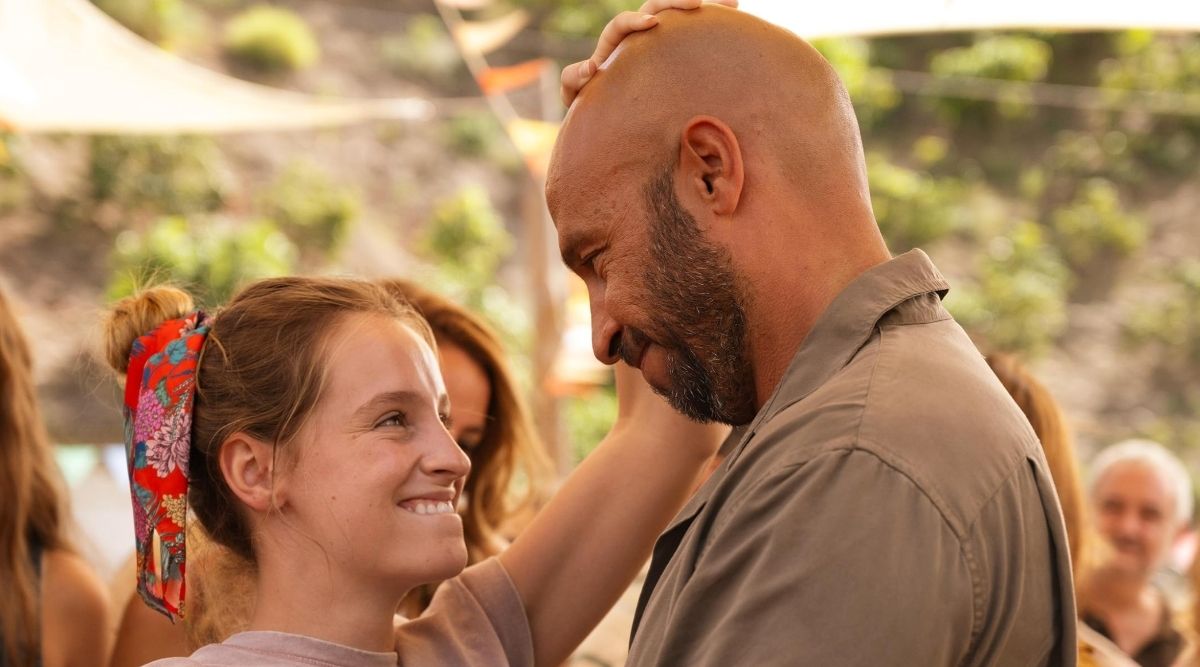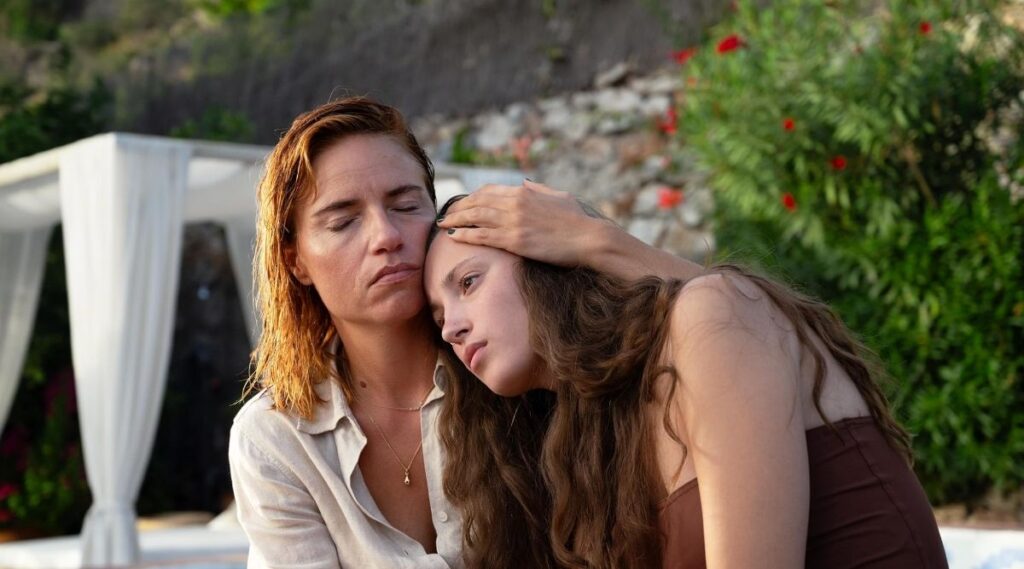Netflix Original Danish-language rom-com Mango (2025) from director Mehdi Avaz and writer Milad Schwartz Avaz is a semi-sweet affair with many fits and starts. Lærke (Josephine Park) is a workaholic mother who promised her 18-year-old daughter, Agnes (Josephine Højbjerg), a real vacation together.
Instead, Lærke is tasked with traveling to a remote part of Malaga, Spain, and taking Agnes with her. Alex (Dar Salim), a Danish expat, owns a mango plantation there, and Lærke is tasked with convincing Alex to sell the plantation so a luxury hotel can be built on its land.
Mango (2025) gets off on the wrong foot, but finds its pace in the middle.

Mango (2025) gets off on the wrong foot. The setup is trite on the surface, and much of the first act is spent watching Lærke and Agnes squabble. It seems obvious from the beginning that Lærke and Alex will fall in love, and an inevitable miscommunication will test their love for one another before they eventually figure out a way for everyone to get what they want.
And that is exactly what happens during Mango, just like every other rom-com. Fortunately, the movie is paced a little more creatively than that. Rather than wait until the midway point, or even the last quarter of the movie, for Lærke to realize that what she’s tasked with doing to the plantation is wrong, it dawns on her pretty early on in her visit. It also happens before Lærke and Alex start to admit their feelings for one another.
While the ridiculous miscommunication that temporarily drives them apart is frustrating, especially when Lærke puts in no effort to explain herself when she could so easily, the middle part of Mango is quite enjoyable thanks to the early release of the other main tension. Lærke and Alex get to bicker and then slowly fall for each other while Lærke and Agnes start to understand one another better.
The character growth helps the ending land with a sense of satisfaction.

Lærke even loosens up rather stupendously. Both she and Agnes are rather irritating at first as they fulfill the stereotypes of an unattentive mother and an unattended daughter. But they have independent experiences in Malaga, including perhaps some flirtation, definitely friendly bonding between Agnes and Alex’s sister-in-law, Paula (Sara Jiménez).
Through their personal experiences, both the mother and daughter come to realize they’re being harsh on themselves and on one another, and start to open up without even having to have an overly obvious conversation about it.
Lærke is also still close with her ex-husband, Agnes’s father, with whom she spends most of her time. The exes’ relationship is charming and helps soften the scenes when both women are initially terse. It also adds some flavor to the latter part of the movie when things start trending back towards overplayed tropes.
The last act of Mango (2025) is lazy, but the ending still feels earned.

The obligatory big blowout before the happy ending feels worse than average. The couple could so easily have avoided the strife if Lærke was just forthright from the moment she had her revelation about how not to tear Alex and Paula away from their plantation. There’s nothing in her personality that should indicate that she would keep vital business information from Alex, even if she struggles to communicate on a personal level.
At least both characters come out the other end of the story having grown in that department. Even if the journey there is uneven, all four characters feel like fully realized enough people who grow independently and together from start to end that their conclusion feels earned, if not rushed, in classic cinematic fashion.
Mango (2025) is an uneven journey with a poor start and a rocky ending, but the middle part of the journey is enjoyable and leads to a satisfying conclusion.
Mango (2025) is streaming now on Netflix.
Mango (2025)
-
Rating - 6/106/10
TL;DR
Mango (2025) is an uneven journey with a poor start and a rocky ending, but the middle part of the journey is enjoyable and leads to a satisfying conclusion.







